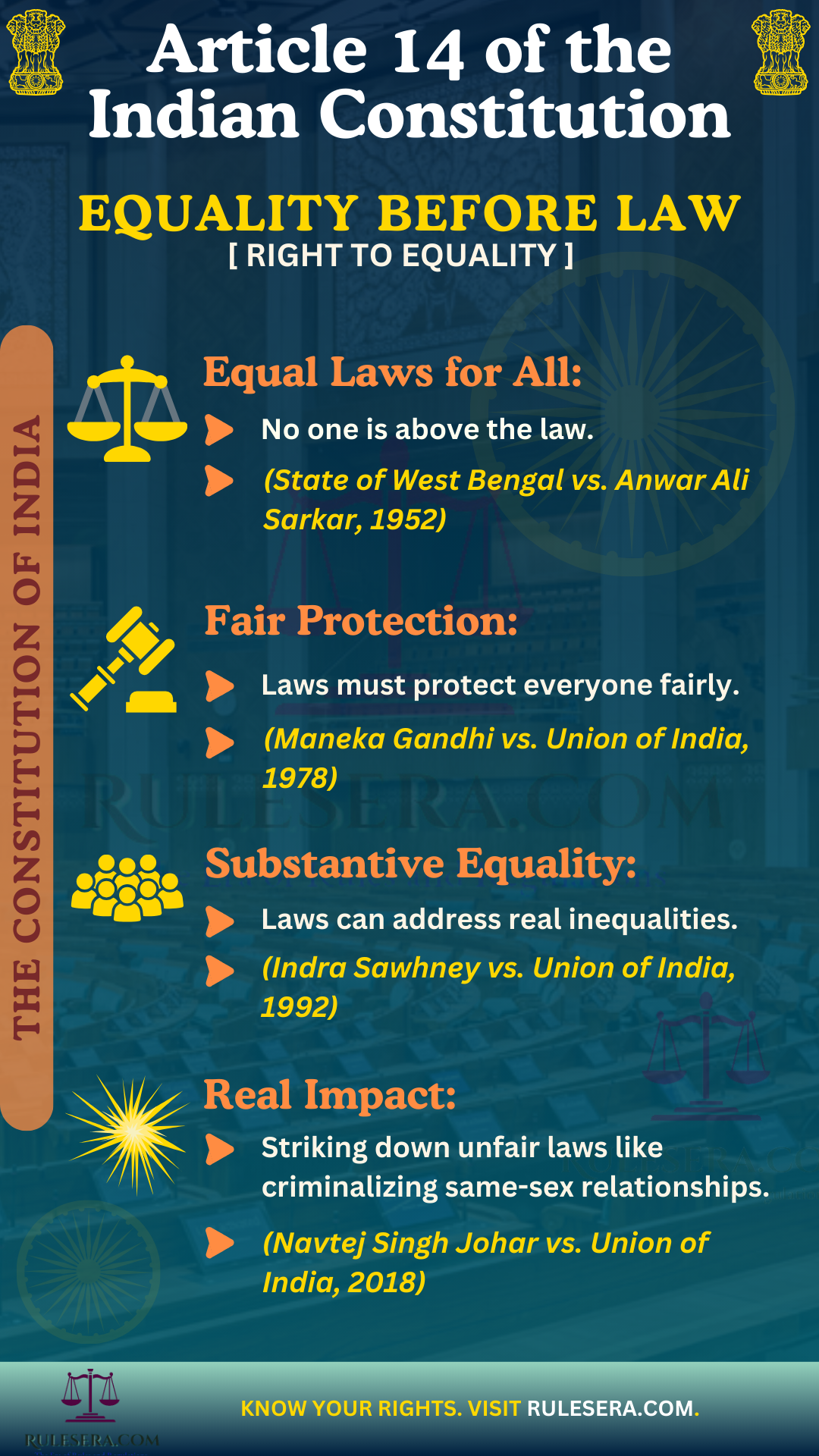Article 14: Equality Before Law

The State shall not deny to any person equality before the law or the equal protection of the laws within the territory of India.
Explanation
Article 14 of the Constitution of India ensures equality before the law for all individuals. It establishes that every person, regardless of status, is subject to the same legal framework, reinforcing a foundation of justice and fairness.
Key Clauses of Article 14
- Equality Before the Law: Every individual is subject to the same legal framework. No one is above the law, as shown in State of West Bengal vs. Anwar Ali Sarkar (1952), reinforcing equal treatment.
- Equal Protection of the Laws: This ensures laws do not discriminate unjustly. The court has upheld that differentiation is permissible when it promotes fairness, as seen in Maneka Gandhi vs. Union of India (1978).
Judicial Interpretation and Amendments
Though not amended, Article 14 has been expanded through court interpretations, emphasizing "substantive equality" rather than identical treatment, as upheld in Indra Sawhney vs. Union of India (1992).
Real-Life Applications
A notable application of Article 14 is the Navtej Singh Johar vs. Union of India (2018) case, where the Supreme Court invalidated a law discriminating against LGBTQ+ individuals, reinforcing equal protection under the law.
Frequently Asked Questions (FAQs):
Article 14 guarantees that the State shall not deny any person equality before the law and equal protection of the laws, reinforcing fairness and justice for all.
Yes. "Equality before law" means everyone is subject to the same laws, while "equal protection of the laws" ensures that laws protect all individuals without discrimination.
Yes, differentiation is allowed if it is reasonable and promotes fairness, as seen in cases supporting affirmative actions to achieve substantive equality.